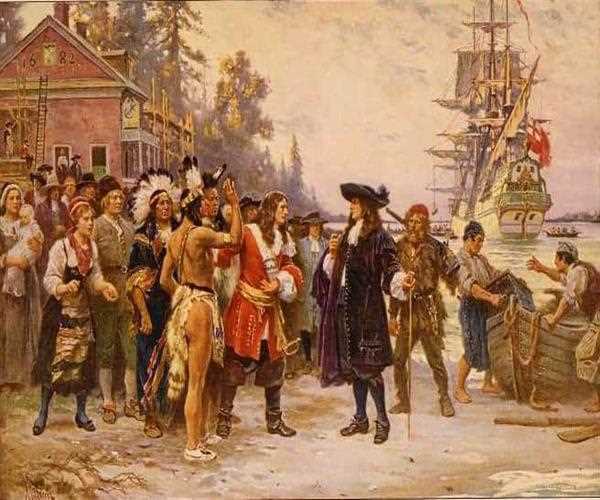William Penn coined the phrase 'Holy Experiment' to describe the ideal government he constructed for Pennsylvania after he received the colony's charter from King Charles II of England in 1681.
Who created the "Holy Experiment"?
Who created the "Holy Experiment"?
2 Answers
*Holy Experiment*

In the vicinity of 1681 and 1683, William Penn built up the state of Pennsylvania. He looked to try all his Quaker standards, and he called it his 'Heavenly Experiment'. He felt that everything would be conceivable in the New World, not at all like in the England of his opportunity.
In 1681, just before he went, he kept in touch with the pilgrims as of now there to state:
For you are presently settled helpless before no senator that comes to make his fortune incredible; you might be represented by laws of your own making and carry on a free, and maybe, a calm and productive life. I might not usurp the privilege of any...
This condenses the theory supporting the Holy Experiment. Its key highlights were:
Reasonable treatment for Native Americans: King Charles II had given Penn the land. Be that as it may, Penn did not think it was the King's to give: in his view, the land had a place with the Leni Lenape Indians who had been living there well before the homesteaders arrived. He was resolved to purchase the land from them, at a reasonable cost. He marked an arrangement with them at Shackamaxon in 1682.
No military: the King was astonished when Penn picked not to carry arms and warriors with him. This was an entire complex to different provinces, where there were visit fights with the Native Americans.
Another way to deal with administration: William Penn was the 'Total Proprietor' of Pennsylvania, under the Royal Charter. That implied he could do as he picked if he paid the King a yearly lease (2 beaver skins and 20% of any gold or silver). Nonetheless, Penn trusted that administration ought to be
Allowed to the general population under it, whatever be, where the laws administer, and the general population are a gathering of those laws
In 1682 Penn set out the principal form of Pennsylvania's Constitution in the 'Incomparable Law'. In 1683 this was increased, in the 'Second Frame of Government'. When he came back to Pennsylvania in 1699 it was re-examined to end up the 'Contract of Privileges'. This stayed to set up until the War of Independence, in 1776.
The key highlights of every one of these archives were:
The flexibility of religion: all could venerate openly, as they picked. Pennsylvania would be available to individuals of every religious influence, not just Quakers. At the time, Quakers and numerous others were all the while being abused in Britain, where the main type of religion permitted was the Church of England. So Pennsylvania was a sanctuary of religious opportunity, and numerous new pilgrims came.
An edified reformatory code; jail was to change, not exclusively to rebuff. Individuals in jail were to be instructed an exchange, so they could be beneficially utilized on discharge, and they were to be dealt with compassionately. Capital punishment was to be restricted to murder and injustice. In Britain at the time numerous generally paltry offenses caused capital punishment and detainment facilities were awful places.
Work for everybody: he made occupations in horticulture, artworks, and exchange considerably more open than somewhere else. Pennsylvania wound up known as "the best poor man's nation."
Instruction for everybody: young ladies and young men were all to be taught. This was a striking advancement when most kids were uneducated, particularly young ladies. Furthermore, the instruction was to be valuable, and pragmatic, so all could discover the business. This was normal for Quakers in Britain as well.
An enlarged establishment: all men were to be given the vote. Uniformity did not stretch out to giving ladies the vote, but rather in England just a little extent of men could vote, in particular, those owning property. There was no say of slaves or 'Indians' notwithstanding.
Town getting ready for a solid living: he planned Philadelphia on a lattice design, with wide open squares and stops. He had seen the assaults caused by the Great Plague in London, and the fire that took after, and he was resolved that his 'greenecountrietowne' would be sound and safe. This way to deal with configuration was later imitated all finished America.
Cheers!